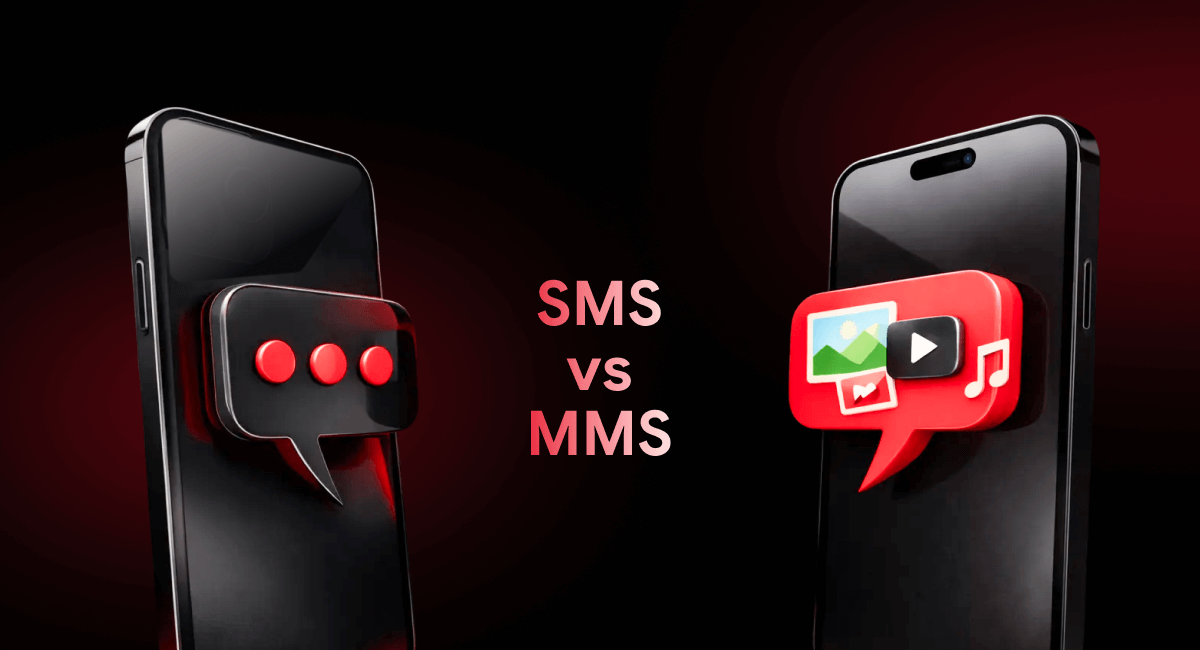TCPA Compliance for Text Messages and SMS Marketing
SMS marketing hits a stunning 98% open rate, crushing email’s 20%. With reach like that, it’s a no-brainer! But it comes with a catch—you’ve got to stick to the rules of the Telephone Consumer Protection Act...

SMS marketing hits a stunning 98% open rate, crushing email’s 20%. With reach like that, it’s a no-brainer! But it comes with a catch—you’ve got to stick to the rules of the Telephone Consumer Protection Act (TCPA).
Set by the FCC in 1991, TCPA rules out the law for ethical mobile marketing. It’s all about protecting people from spammy texts while keeping businesses playing fair. Breaking these rules? That could mean big fines, lawsuits, and a serious hit on your reputation.
To simplify compliance and optimize SMS marketing strategies, platforms like Easify make the TCPA compliance pretty easy with features like 10-Digit Long Code (10-DLC) support.
This guide breaks down why staying TCPA-compliant is crucial and how to keep your SMS strategies both powerful and above board.
What Is the TCPA?
The TCPA controls telemarketing, auto-dialing, prerecorded messages, texts, and faxes, keeping consumers out of unwanted messages and letting them know how their personal data is used, all the way to ensuring that they are contacted only upon their consent.
Key TCPA Rules:
- No auto-dialed calls or texts to mobile phones without permission.
- You need to get clear, written or through-text consent before sending marketing messages.
- Recipients must always have an easy way to opt out of your messages.


Why is TCPA Compliance Important?
Well, if you are running SMS marketing as a business, ignoring TCPA compliance will backfire, keep these in mind:
Cases of Violations
- Drazen v. GoDaddy.com (2024): The Eleventh Circuit overturned a $35 million class-action settlement, citing improper procedures and excessive attorney fees. The case highlighted flaws in class-action settlements and reinforced strict TCPA compliance standards.
- Bankroll Capital (2024): A Texas court hit Bankroll Capital with a $39,000 fine for six unsolicited calls, combining TCPA penalties ($1,500 per call) and state law fines ($5,000 per call). This case highlights the dangers of overlooking legal risks.
- (2024)Whaleco/Temu: A class-action lawsuit claims TCPA violations for sending unsolicited texts to numbers on the do-not-call list, seeking damages of up to $1,500 per violation.
Customer Trust and Brand Credibility
It’s all about trust when it comes to being credible and maintaining strong relationships with customers. Violating TCPA will make it go in vain, making it harder to build long-term relationships.
Legal Implications
Businesses across all industries must recognize that TCPA violations can lead to lawsuits, impacting their financial health and overall brand image. A single class-action lawsuit can result in significant legal fees and settlements.
Platforms like Easify simplify SMS marketing and also integrate built-in safeguards for TCPA compliance, ensuring that your messages are sent legally and responsibly.
TCPA Compliance Checklist
To operate within TCPA guidelines effectively, businesses can follow a checklist:
- Secure Explicit Written Consent Before adding customers to your SMS marketing list, ensure you have obtained clear and verifiable written consent. This could be done through:
- a. Use forms (online or paper) where customers check a box to agree to messages.
- b. Provide keyword opt-ins by framing the texts such that it’s easy for customers to send a short code, expressing their consent to receive messages.
Always store these records securely for legal backup later.
- Send a Clear Opt-In Disclosure Once consent is obtained, follow up with a detailed opt-in message that includes:
- a. Your business name.
- b. The purpose of the messages.
- c. Message frequency (e.g., 4-6 messages per month).
- d. Message and data rate notifications.
- e. Instructions for help and opt-out options.


- Communicate Terms and Conditions Clearly
Keep your customers informed by sharing terms and conditions regularly. Please Include a link for easy access, remind them they’ve opted in, and notify them about any updates. This keeps things transparent and compliant. - Adhere to Business Hours for Communication
Text between 8:00 AM and 9:00 PM local time.- Be mindful that seven states namely, Florida, Washington, Oklahoma, Maryland, New York, Georgia, Michigan(proposed) have additional rules on text timings, so always check local laws before hitting send.
- Identify Your Business in Every Message
Always include your business name or sender info in every text. It builds trust and lets the recipient know who’s reaching out. - Offer a Simple Opt-Out Mechanism
As required by the TCPA, allow recipients to opt out of future messages.
A simple “STOP” command should immediately remove them from your SMS list. Because clear opt out instructions in every message ensure customers can easily opt out when they wish. - Honor the National Do Not Call Registry & Internal Opt-Outs
No matter how great your deal is, the people in the National Do Not Call Registry or those who’ve opted out do not want to know. Also, maintain an internal list of people in your organization who prefer not to be contacted to steer clear of violations. - Be updated on regulatory changes.
SMS laws are always evolving, so stay informed about changes to the TCPA, also regularly check how compliant your texts are to avoid legal issues. - Keep Thorough Records
Maintain accurate and detailed records of:- a. Consent forms.
- b. Message logs.
- c. Opt-out requests.
- d. Updates to terms and conditions. These records may be critical in case of legal audits or disputes.
- State-Specific Regulations Along with federal TCPA rules, keep eyes on state-specific laws also, especially regarding contact hours. Follow both to ensure compliance and avoid legal issues.
- Send Only Compliant Messages
Focus on updates or alerts that aren’t marketing or solicitation to stay within regulations and build trust. Ready for Hassle-Free, Compliant SMS Marketing? Get Started with Easify!
Best Practices for Ensuring TCPA Compliance
It’s not at all a headache to stay TCPA-compliant. Just stick to these simple guidelines and your business won’t be facing any legal issues.
- Implement an Opt-In System
Best Practices for Collecting Consent:
- Use double opt-ins to confirm customers really want your messages. For example, after they sign up, send a follow-up asking them to reply “YES” to confirm
Provide Transparent Terms:
- Clearly communicate details like how often they’ll hear from you, potential data charges, and what kind of updates to expect.
- Crafting Compliant Messages
Clear Sender ID: Always introduce yourself—e.g., “This is Business Name.” This lets customers know who’s texting.
Opt-Out Instructions: Every message needs a clear way out, like “Reply STOP to unsubscribe.” It’s simple and required by law.
Establish a Previous Relationship: Ensure prior contact with the customer for carrier verification and compliance with messaging regulations.
- Regular Training for Team Members
Keep your marketing and customer support teams informed about TCPA rules. Focus on:
- Proper methods to collect consent.
- Timing restrictions (no texts before 8 a.m. or after 9 p.m. recipient’s local time).
- Respecting opt-out requests immediately.
- Partner with a Trusted SMS Service Provider
Choose a reliable platform, like Easify, that’s already equipped with TCPA compliance features. Look for:
- Automated opt-in and opt-out systems with TCPA compliance
- Delivery scheduling to respect business hours
- That follow allow Do Not Call registry compliance and do spam trap checks.
- Conduct Regular Audits
- Why Audits Matter
Routine audits ensure your SMS marketing processes stay aligned with the latest regulations. What’s interesting is that carriers also recommend updating your list every 18 months. - What to Check
- Are opt-ins documented?
- Are opt-out requests handled immediately?
- Are messages sent only during permitted hours?
- Address any gaps right away to avoid hefty fines.
Key TCPA Requirements for SMS Marketing
Adhering to specific TCPA requirements is essential for SMS marketing success. Here are some key components:
Consent Rules
- Prior Express Written Consent:
- Businesses need clear permission before sending marketing texts. Easify simplifies this process with customizable opt-in forms.
Message Content Guidelines
- Avoid Prohibited Content:
- Ensure your messages do not include anything that would be considered unsolicited or harassing.
- Mandatory Disclosures:
- Include necessary disclosures in your messages to comply with regulations.
Opt-Out Mechanisms
- Clear Instructions for Recipients:
- Provide straightforward ways for customers to opt out of future messages. Easify has automated opt-out handling to ensure prompt compliance.
Time Restrictions
- Permissible Hours:
- Understand the rules around sending promotional messages during certain hours. Easify provides scheduling features to help maintain compliance with this requirement.
Record-Keeping
- Maintain Documentation:
- Keep thorough records of consent and communication logs. Easify offers robust tracking and reporting tools to facilitate this
Common TCPA Violations to Avoid
Navigating TCPA compliance means avoiding several common pitfalls, including:
- Failing to Obtain Consent
Sending SMS or making calls without prior express written consent is one of the most common violations. This applies especially to automated systems, which require explicit permission before initiating contact. - Autodialing and Robocalls
Using auto dialers or robocalls to numbers on the National Do-Not-Call Registry or without consent breaks TCPA rules. Always verify numbers first. - Improper Disclosures
Not giving clear disclosures during calls, such as identifying the business and the reason for your call is non-compliance. Be transparent. - Ignoring Opt-Out Options
Not including an easy-to-follow opt-out mechanism in SMS messages or calls, like a “Reply STOP to unsubscribe” option, breaches TCPA rules. Businesses must honor opt-out requests immediately. - Timing Violations
Sending messages or calls outside the allowed hours (8:00 AM to 9:00 PM in the recipient’s time zone) breaks TCPA rules. Also, make sure to follow state-specific regulations when they apply.
Benefits of TCPA Compliance with Easify
TCPA compliance is easy when Easify is backing you up, with added benefits!
- Legal Protection: Dodge lawsuits and hefty fines by following regulations, while making compliance easier with Easify’s automated tools.
- Enhanced Customer Trust: Clear, respectful communication boosts your credibility and makes customers feel valued.
- Improved Deliverability: Compliant messages mean better delivery giving higher customer engagement. Built-in Scrubbing Features: Effortlessly validate phone numbers and emails with Easify’s scrubbing tools, ensuring your messages reach valid contacts.
- Blacklist Automation: Easify automatically adds recipients who opt out to a blacklist, preventing them from receiving further messages and maintaining compliance.
- 10-DLC Approval Assistance: Navigating the complexities of 10-Digit Long Code (10-DLC) approval can be challenging, but Easify’s support team simplifies the process, helping you get verified quickly.
For more info on TCPA, check out this TCPA checklist!
Conclusion
Navigating SMS marketing means getting a solid grasp of TCPA compliance. Following these rules not only reduces risks but also builds trust with your customers. By using clear consent practices, easy opt-out options, and teaming up with compliant platforms like Easify, businesses can level up their marketing while staying on the right side of the law.
Ready to simplify your SMS marketing and protect your business from compliance issues? Check out Easify’s user-friendly solutions today. The peace of mind that comes with staying TCPA-compliant is priceless in today’s competitive market.
Disclaimer: This blog is all about sharing information and isn’t meant to be taken as legal advice.

A text message sender gives your outreach the visibility most channels fail to deliver. Your customers often engage with text messages. On the other hand, emails and outbound calls are usually ignored. If your outreach depends on the latter-mentioned channels, you are operating with lower visibility than necessary. Whether you are running a dental practice, a retail store, a real estate or insurance agency, or a five-person marketing team, the way you communicate with customers matters. Text messaging is not just faster. It gets results. Let’s break down everything you need to know. What is a Text Message Sender? A text message sender is software that lets businesses send SMS to their customers at scale. With this software, you manage contacts, send texts, and track results from one centralized platform. Here is how it works: you upload a list of contacts (or build one through opt-ins), write your message, personalize it with the customer’s name or other details, and then either send it immediately or schedule it for later. The platform...

You’re here because you need to text your customers, but you’re not sure which option to pick. SMS vs MMS isn’t just tech jargon. It’s a real decision that affects your budget, engagement rates, and whether people actually read what you send. As a business owner trying to reach customers, you’re probably wondering: should I send a text message or one with a picture? And does it actually matter? Well, yes. It does. SMS and MMS aren’t the same thing. They cost different amounts. They work differently. And if you pick the wrong one for the wrong situation, you’re either wasting money or missing out on engagement. Let’s fix that with this guide. Key Takeaways (TL;DR) Here’s what you need to know right now: SMS is plain text. Fast, cheap, works everywhere. Perfect for reminders, alerts, and quick updates. MMS includes images, videos, and other media. Costs more but gets way more engagement. Great for promotions and anything visual. When to use SMS: Appointment confirmations, delivery updates, verification codes, time-sensitive alerts. When to use MMS: Product launches Event...

Navigating the Complex World of Digital Communication with Easify In the ever-evolving landscape of digital marketing, the thin line between effective communication and spam is crucial. Easify’s AI Compose tool emerges as a key player, ensuring that your SMS and email campaigns reach their intended audience without being flagged as spam. This tool stands out by understanding the nuances of digital messaging, ensuring compliance, and maintaining the delicate balance between persuasive marketing and intrusive spam. Understanding Spam: What Makes Your Communication Unwanted? Spam is often perceived as unsolicited, irrelevant, or overly frequent communication that clutters inboxes and irritates recipients. It’s not just about the content but also about the context and consent. Recognizing these factors is the first step in ensuring your messages are welcomed rather than dismissed as spam. This part of the blog will delve into the characteristics of spam and how to differentiate your communications effectively. The...